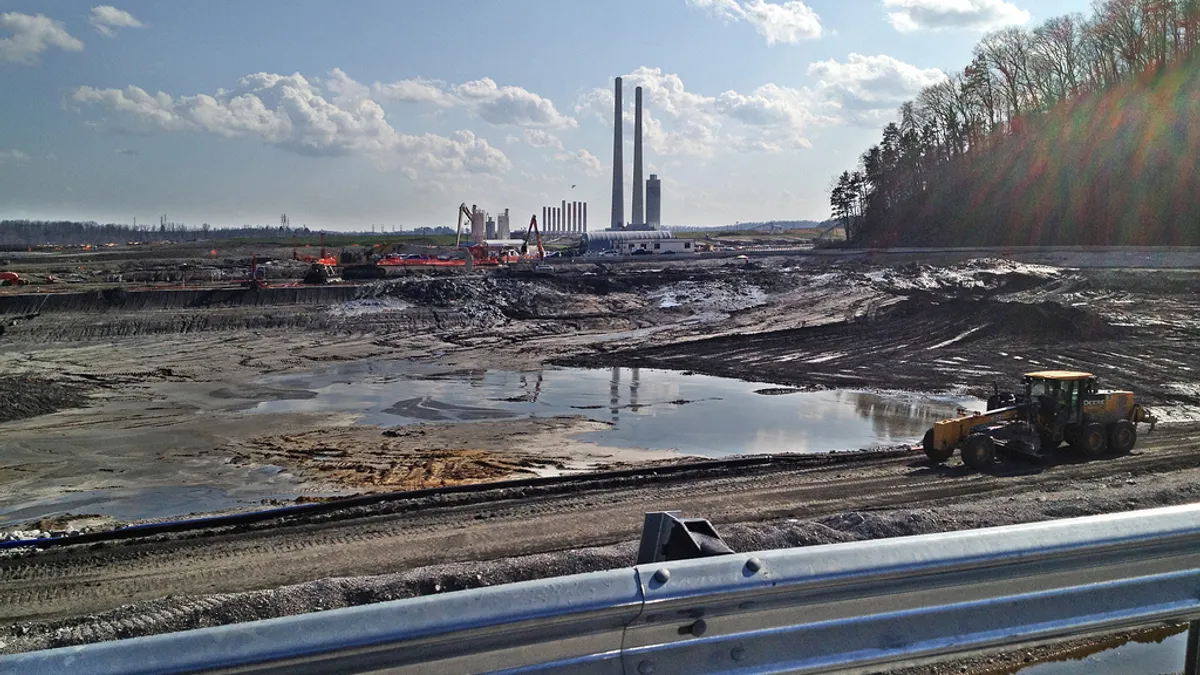Dive Brief:
- A draft report issued earlier this month by the North Carolina Department of Environmental Quality on Duke Energy's 32 coal ash ponds in the state would label most of them "high priority," and therefore in need excavating and closure by 2019.
- The DEQ is preparing to issue the final assessment Dec 31, with the ratings ultimately determining when the ponds will be closed and by what process. Lower-priority ponds could be drained and covered, but if staff's draft recommendations stand Duke would have to excavate 27 of them, a more expensive process.
- But according to Duke, the draft report does not take into account the most updated information. And the DEQ questioned the motives of Southern Environmental Law Center for releasing the analysis before the agency was prepared to do so.
Dive Insight:
A final analysis of Duke's coal ash ponds is due Dec. 31, and if the current figures stand, then it would appear cleanup costs would come in on the high side of the utility's estimates. Closing all of the ponds could cost up to $3.4 billion, the News & Observer reported.
The draft report labels 27 of Duke's 32 ponds as "high priority," meaning they would need to be excavated and closed by 2019. Three ponds are rated as an intermediate risk, meaning they would need to be excavated as well but Duke has until 2024. Only two are listed as low-risk, meaning they must be drained and covered by 2029.
The data was released by the Southern Environmental Law Center (SELC), and it appears both Duke and the DEQ are warning observers not to consider the draft report's findings as final
The draft report is dated Nov. 30, and Duke has said that it subsequently submitted updated data to regulators. And the DEQ said the data is incomplete and could not be the basis for a solid decision.
“It would be irresponsible and premature to make final assumptions before Duke has provided DEQ with all of the data it needs,” a department spokeswoman told the News & Observer.
DEQ spokeswoman Stephanie Hawco told Charlotte Business Journal that “the SELC is attempting to corrupt the process by releasing an early draft out of context and ignoring the most recent data."
The North Carolina Supreme Court ruled in June the state’s 2014 coal ash law allows Duke Energy until 2029 to complete its coal ash site clean-up in the state. A year ago, the utility revealed in regulatory filings that it had identified an estimated 200 leaks and seeps at 32 coal ash storage sites. The leaks ooze over 3 million gallons of contaminated wastewater daily.














